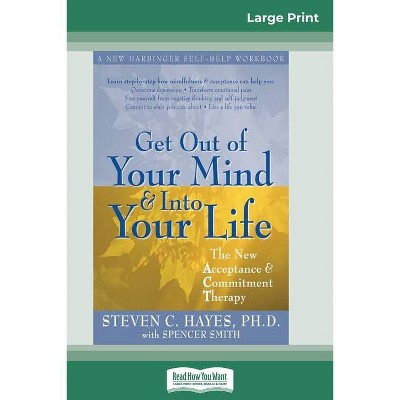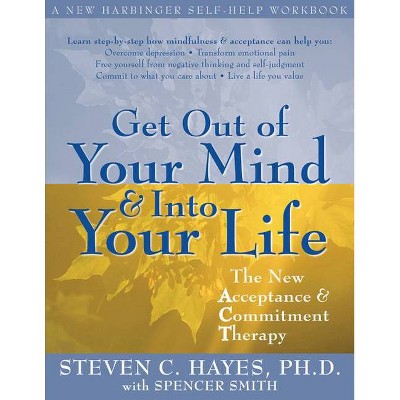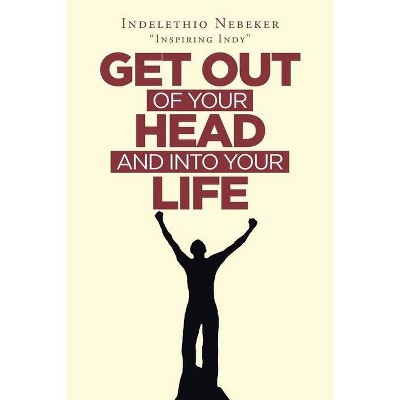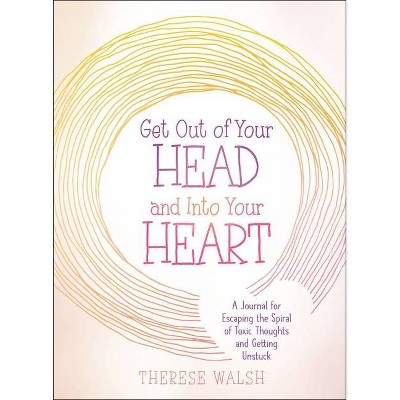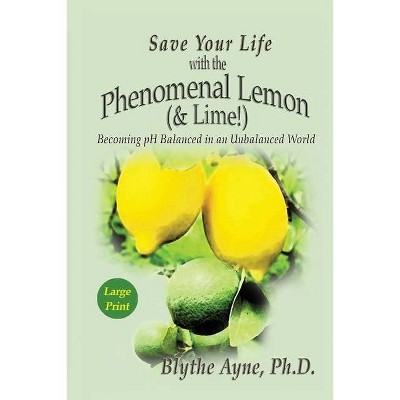Get Out of Your Mind and Into Your Life (Easyread Large Edition) - 16th Edition,Large Print by Steven Hayes & Spencer Smith (Paperback)
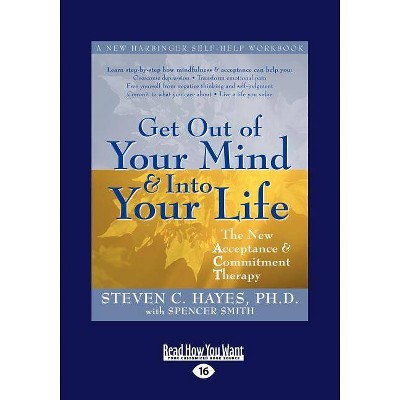
Similar Products
Products of same category from the store
AllProduct info
<p/><br></br><p><b> About the Book </b></p></br></br>Acceptance and Commitment Therapy (ACT) is a new approach to psychotherapy that rethinks even the most basic assumptions of mental well-being. Starting with the assumption that the normal condition of human existence is suffering and struggle, ACT works by first encouraging individuals to accept their lives as they are in the here and now.<p/><br></br><p><b> Book Synopsis </b></p></br></br>For a scientist committed to empirical evaluation, it is important to show that materials can be helpful outside the context of a therapeutic relationship, so, generally speaking, we know that a book like this is likely to be helpful. Several of the specific components in this book have been tested, sometimes in a form very similar to the way you are contacting this material. For example, several studies evaluated the impact of short passages drawn nearly word for word from ACT materials (very similar to what you've read) that were recorded on audiotape, read aloud by a research assistant, or were presented to the participants to read. Typically, these studies focused on the ability of participants to tolerate distress of various kinds, such as gas-induced panic-like symptoms, extreme cold, extreme heat, or electric shock. A few studies looked at the distress produced by difficult or intrusive cognitions, or clinically relevant anxiety. Some were done with patients, others with normal populations. The specific ACT components that have been examined so far include defusion, acceptance, mind-fulness, and values. The techniques included exercises, metaphors, and rationales, including several that can be found in this book (e.g., word repetition, physicalizing, leaves on a stream, the quicksand metaphor, the Chinese finger trap metaphor, and so forth). Thus, it seems fair to say that it is known that at least some of what you've read can be helpful at least some of the time outside of the context of a therapeutic relationship, when presented in a form similar to the form in which you have contacted this material.....Steven C. Hayes, Ph.D., is University of Nevada Foundation Professor of Psychology at the University of Nevada, Reno. He is author of more than 350 scientific articles and twenty-seven books, including Acceptance and Commitment Therapy and Relational Frame Theory - two books that significantly develop the concepts on which Get Out of Your Mind and Into Your Life is based. His research explores the nature of human language and cognition and their application to the understanding and alleviation of human suffering. In 1992, the Institute for Scientific Information reported Hayes among the highest-impact psychologists in the world during the years 1986-90 based on the citation impact of his writings. He is past-president of the Association for Advancement of Behavior Therapy, the American Association of Applied and Preventive Psychology, and Division Twenty-Five of the American Psychological Association. He was the first Secretary-Treasurer of the American Psychological Society. He is the recipient of the Don F. Hake Award for Exemplary Contributions to Basic Behavioral Research and Its Applications from Division 25 of the American Psychological Association. In 1999, US Health and Human Services Secretary Donna Shalala appointed him to a four-year term on the National Advisory Council on Drug Abuse. Spencer Smith is a writer and editor based in Santa Rosa, CA. He is coauthor of The Memory Doctor.
Price History
Price Archive shows prices from various stores, lets you see history and find the cheapest. There is no actual sale on the website. For all support, inquiry and suggestion messagescommunication@pricearchive.us
